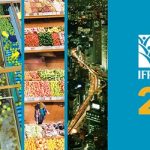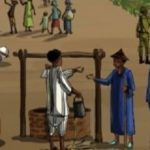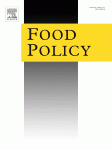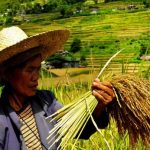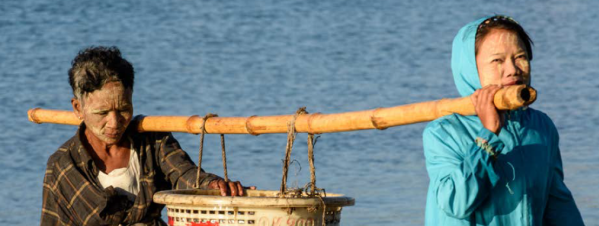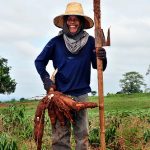By Richard Robertson, IFPRI — Over the last decade, computer models of crop growth have increasingly been used to understand how climate change may affect the world's capacity to produce food. The International Food Policy Research Institute (IFPRI) has undertaken a major sustained effort to analyze changes in the productivity of major crops across the >> Read more
Events & News
Global Futures & Strategic Foresight Extended Team Meeting at IRRI, 15-19 May 2017
By Keith Wiebe — IRRI recently hosted the Global Futures & Strategic Foresight (GFSF) Extended Team Meeting and Writeshop from May 15-19, 2017. GFSF is a CGIAR initiative to explore long-term trends, challenges, and policy options for food and agriculture through multidisciplinary foresight analysis. GFSF is led by IFPRI in collaboration with AfricaRice, Bioversity, CIAT, CIFOR, >> Read more
Exploring the impact of alternative investments on poverty, hunger, and the environment
By Tim Sulser — The Global Futures and Strategic Foresight program recently released results of a study using quantitative foresight modeling to explore the impacts of alternative investments in agricultural research, resource management, and infrastructure on the CGIAR’s System Level Outcomes relating to poverty (SLO1), food and nutrition security (SLO2), and natural resources and ecosystem >> Read more
Conservation Agriculture discussed in Tunisia
The representatives of more than 10 public administrations and agencies representing a wide range of agricultural institutions, farmers and farmers associations attended a round table to discuss the milestones for further development of Conservation Agriculture in Tunisia, held in Tunis on 16 March 2017. The workshop was organized by ICARDA, jointly with IRESA-Tunisia (Agricultural Research >> Read more
2017 Global Food Policy Report
We are pleased to announce that we are now going to be making a regular contribution to IFPRI’s annual flagship publication, the Global Food Policy Report, in the form of a statistical annex presenting up-to-date projections for key indicators of production, consumption, trade, and hunger from the IMPACT system of models. Click here for more >> Read more
Exploring impacts of climate and socioeconomic change in West Africa
By Daniel Mason-D'Croz and Shahnila Islam, IFPRI Climate change will likely have a negative effect on the agriculture sector in West Africa due to changing precipitation patterns and increasing temperatures. These changes can have negative impacts on food security in the region and, ultimately, the consequences of these changes will depend in part on society’s >> Read more
Do markets and trade help or hurt the global food system adapt to climate change?
By Keith Wiebe, IFPRI Rapidly expanding global trade in the past three decades has lifted millions of people out of poverty. But trade has also reduced manufacturing wages in high income countries and made entire industries uncompetitive in some communities, giving rise to nationalist politics that seek to stop or reverse further trade expansion in the >> Read more
Improved modeling of rice under environmental stresses
By Tao Li & Samarendu Mohanty, IRRI The worldwide usage of and increasing citations for ORYZA2000 has established it as a robust and reliable ecophysiological model for predicting the growth and yield of rice in an irrigated lowland ecosystem. Because of its focus on irrigated lowlands, its computation ability is limited in the representation of the effects >> Read more
Fish to 2050 in the ASEAN region
By Chin Yee Chan, WorldFish The fisheries and aquaculture sectors in the countries of the Association of Southeast Asian Nations (ASEAN), provide income, employment opportunities, poverty alleviation, and improved food and nutrition security for the region. Extending the previous work from the Fish to 2030 report with the effort of updating parameters of the IMPACT >> Read more
Cassava: Subsistence Crop or Trendy Commodity?
Some crops have it easy. They’re planted, they grow, they’re harvested and, finally, they’re eaten. No such luck with cassava. Cassava, as food, at the very least must be cooked in order to remove certain toxins. More interesting, however, is that cassava serves as a basis for the manufacture of many by-products ranging from chips >> Read more




